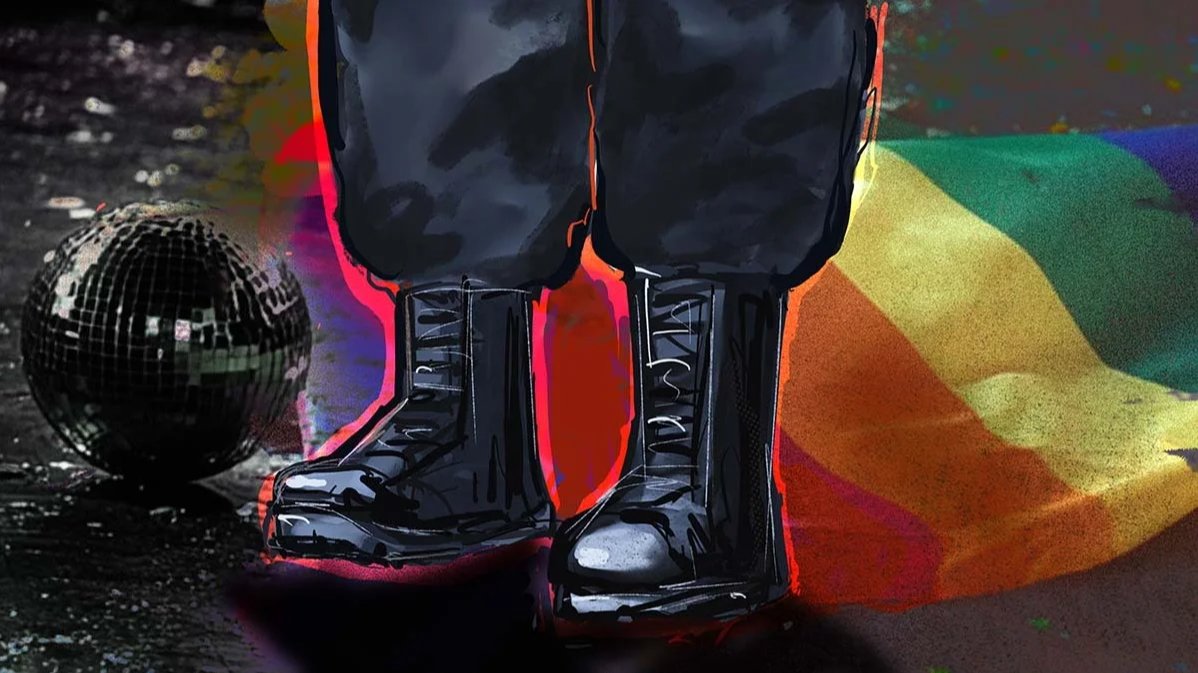Since the Russian Supreme Court recognised the “international LGBT movement” as extremist in November 2023, Russian police have cracked down on spaces that they deem to be LGBT-related or simply “obscene”, targeting events ranging from drag shows to board-game nights.
A gay club was shut down in the Russian city of Kirov on 8 November and its owner and three drag artists charged with extremist offences. Police had raided the club the week before, and a few days before that security forces raided drag shows in the cities of Chita and Yaroslavl too. Law enforcement has also shown up at events that had nothing to do with the LGBT community, such as furry meetings and board-game nights.
This wave of heightened attention from law enforcement towards LGBT issues began in November 2023 when the Supreme Court recognised the “international LGBT movement” as extremist and in the wake of the outrage caused by the “almost naked” party, in which celebrity partygoers were encouraged to wear as few clothes as possible.
Novaya Gazeta Europe has collated the documented raids, disruptions and cancellations carried out by security forces in their fight to defend “traditional values”, finding 149 such cases in total since the start of the war, with 40% of events being linked either to the LGBT community or to events with overt manifestations of sexuality.
This figure has grown to 60% since the “LGBT movement” was declared extremist, with security forces showing renewed interest in any event in some way related to sex and erotica.
There were more unexpected cases too, quite aside from less surprising instances of police applying pressure to organisers of sex parties. A club manager in the city of Ulyanovsk, in the Volga region, was summoned to the prosecutor’s office in January after an event at his establishment featured a male stripper. In February, authorities in the town of Belogorsk in the Russian Far East began carrying out checks on one nightclub which held striptease competitions and staff members were forcibly sent “to volunteer and provide practical support” to Russian soldiers fighting in Ukraine.
A club manager in the city of Ulyanovsk was summoned to the prosecutor’s office in January after an event at his establishment featured a male stripper.
There were at least 13 cases where the security forces’ actions were politically motivated. We didn’t count public protests or pickets, just information events or meetings of supporters of a specific cause. Security forces raided Open Space, a Moscow exhibition and evening of letters dedicated to political prisoners, on multiple occasions. A raid on one nightclub was due to suspicions leaflets proposing donations to the Armed Forces of Ukraine were being distributed.
We have found at least 59 cases of security forces raiding or closing venues, cancelling events, and carrying out official inspections in their quest to protect “traditional values”.
Security forces showed up at eight private events, organised either for a group of friends or by invitation only, taking down the attendees’ personal details on more than one occasion.
Some events were disrupted after complaints about “LGBT propaganda” despite having no clear links to the queer community, such as the February 2024 raid at a cosplay festival following a denunciation from SERB, a group of pro-Kremlin activists. Police also targeted a furry meet-up in October 2023, about a year before Russian officials began to make calls to ban the “international furry movement”.
Another raid in May targeted a board game night organised by a group of libertarians after a denunciation from the same pro-Kremlin group that accused them of spreading “LGBT propaganda”.
At least 10 venues are known to have closed, either temporarily or permanently, since the Supreme Court’s ruling deeming the “LGBT movement” extremist. This includes both venues that regularly held LGBT events, such as Central Station in St. Petersburg and the Luptă community centre in Yekaterinburg, and others that appear to have ended up in the crosshairs by sheer bad luck.
As the Kremlin mulls plans to task the Russian police with enforcing public morality, the persecution of venues deemed to violate elusive “traditional values” is likely to increase.
In Voronezh, visitors of one bar complained to the head of the Russian Investigative Committee Alexander Bastrykin that they saw two other bar-goers kiss, after which the bar was closed “for repairs”. In Novosibirsk, one bar closed after a local “social activist” wrote a complaint to the Investigative Committee because of a video which showed simulated sex on the bar counter.
As the Kremlin mulls plans to task the Russian police with enforcing public morality, the persecution of venues deemed to violate elusive “traditional values” is likely to increase. For many business owners, the safest option is to close a venue that goes against what the Russian security forces deem “normal” — but the government’s understanding of what is allowed and what must be brutally dismantled seems to be in a constant state of flux.
Join us in rebuilding Novaya Gazeta Europe
The Russian government has banned independent media. We were forced to leave our country in order to keep doing our job, telling our readers about what is going on Russia, Ukraine and Europe.
We will continue fighting against warfare and dictatorship. We believe that freedom of speech is the most efficient antidote against tyranny. Support us financially to help us fight for peace and freedom.
By clicking the Support button, you agree to the processing of your personal data.
To cancel a regular donation, please write to [email protected]

